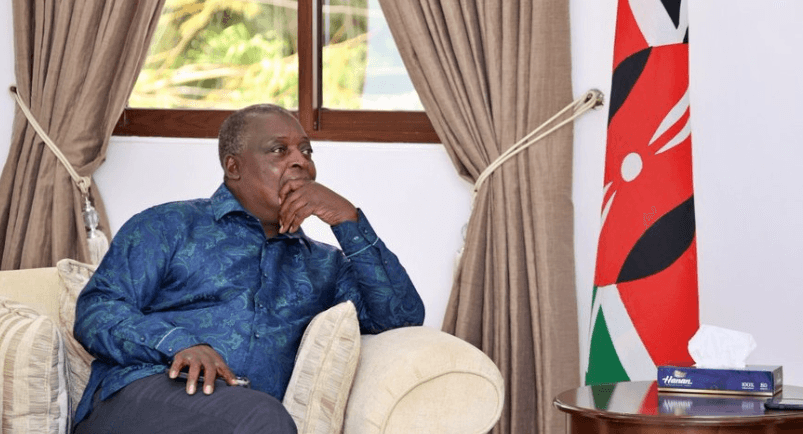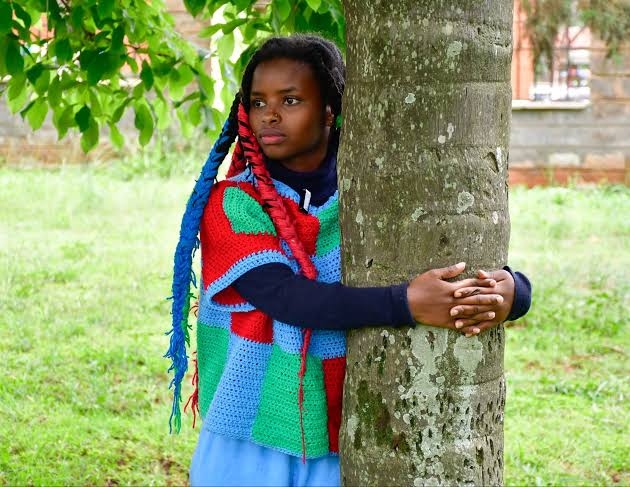The scales of justice seem skewed.
Since the inception of the Independent Policing Oversight Authority in 2011, only eight officers were convicted in 2020 of crimes, less than one per cent of the cases it has pursued.
Amnesty International said in 2020, more than 740 Kenyans were killed by police since 2007, including at least 130 in 2020.
A national survey in 2018 suggested most Kenyans believed the biggest risk to their lives was violence by police.
In June last year, hundreds of Kenyans flocked to Mathare to protest against the fatal police brutality to enforce coronavirus containment measures countrywide.
The crowds marched around the slum calling for an end to police violence, which had left more than 20 people dead and numerous injured during the curfew. They made stops where innocent people were gunned down by police.
Deputy police spokesman Charles Koskei said when police go on operations, the police commanders take precautions to prevent unlawful use of firearms.
Koskei said when disproportionate use of force or firearms result in injuries or fatalities, there is an inquiry by the relevant arms of the National Police Service and the Independent Policing Oversight Authority.
Deputy police officers do not learn from other police officers who have been convicted, the police spokesman said.
“Humanity has the propensity to contravene social ethics, moral norms and legal edicts,” he said.
Thus, the plethora of laws and regulations and social ethics and moral norms for a smooth social order of which the police are part [cap 84 Section 61(1) and (2)] guide them on the power to use firearms according to the Constitution and with nonviolence whenever possible.
Guidelines and conditions for the use of force and firearms are stipulated in the sixth schedule of the Act. Cap 47 of the service standing orders give conditions for the use of force. “National Police Service officers receive adequate training and retraining on the use of force and firearms to act with proportionality, legality, accountability and necessity,” Koskei said.
ENHANCING ACCOUNTABILITY
Lawyer Danstan Omari said a wing of the Administration Police is among those who misuse guns.
He said they represent 70 per cent of those who have misused their weapons on civilians. They have either killed their wives, husbands; many APs keep their guns in their bedrooms.
There is no armoury for APs as they are stationed at chiefs’ offices, Omari said.
Ninety-nine per cent of private investigators are former police who are trained by police. DCI training is the only credible training in the country
He said this endangers lives when the officer, for example, gets drunk and his girlfriend is taken by someone else. He runs to the house, picks up the gun and shoots.
“This has been corrected after they were merged with the Kenya Police and they are under the control of an OCS,” Omari said.
He said all guns must be taken to a central armoury or the OCS’s office to safeguard lives.
The lawyer also said there is killing by police when regular police officers and APs hire out their guns with clear instructions not to shoot but to use the gun to scare. Return the gun with bullets...This practice is rampant.
To hold police accountable, the officer who issues guns at a police station is a sergeant who is a junior officer. The lawyer said guns should be issued by an officer above the rank of an inspector, who is accountable.
Most police officers are corruptible, he said.
ILLEGAL GUNS IN POLICE HANDS
Omari said some police recover guns and use them for extrajudicial killings.
He said at the shooting scene, most witnesses say they saw police shoot. The firearm officer would link the officers to the gun.
“The reason why officers who have killed escape being arrested is because they never used their guns but illegal guns,” Omari told the Star.
He added that illegal guns should be in the custody of the OCS.
In extrajudicial killings the police never use legal guns, that explains the many unexplained matters, the lawyer said.
He also said there’s a Blue Code of Silence whereby police have taken an oath to watch each other’s back. Each time they commit an offence, they don’t seriously investigate, he said.
“They never do proper investigations and their accountability is swallowed in that code,” Omari claimed.
The lawyer said Ipoa is fairly independent but it often relies on former police officers as investigators. All employees are former officers, including EACC, he said.
The quality of investigation is wanting because once a police officer you remain an officer.
Accountability is hard to achieve when the police are investigating the police, Omari said. He suggested Ipoa should get foreign investigators but it is short of funds.
Omari said some private investigators are River Toad investigators.
“Ninety-nine per cent of private investigators are former police who are trained by police. DCI training is the only credible training in the country,” Omari said.
It’s impossible to put to account a policeman who is the perpetrator of a crime by deploying another officer to put the colleague to account, he stated.
Victims of police only get justice when the media air and publish their story.
“That’s when they can’t cover up the evidence,” Omari said. “When media reach [there] fast, they don’t distort it.”
Vincent Chahale, senior manager of justice system interventions at the International Justice Mission Kenya, says to enhance police accountability, it’s important to consider the history of policing in Kenya. That’s how to find the answer to police murders.
Its history is colonial.
No, because like many other criminal matters, even where the offending police officers are charged, it takes too long to conclude the cases resulting in delayed justice
However, further strengthening of police oversight authorities both within and outside the service should be encouraged, especially civilian oversight, Chahale said.
Secondly, the wellness of police officers should be improved to reduce abuse of power that may be linked to harsh and strenuous work conditions.
It is not advisable to give a depressed man a gun, it’s not a toy. Furthermore, emphasis should be placed on technical as opposed to physical attributes during recruitment and on the job training.
Placing so much reliance on physical attributes such as a missing tooth is a mockery of such an important exercise that is expected to recruit a man who will wield so much power.
The IJM senior manager further said that it is a yes and no on people who are killed by police getting justice.
“No, because like many other criminal matters, even where the offending police officers are charged, it takes too long to conclude the cases resulting in delayed justice,” he said.
Also, he added that the process of investigations in such cases is confronted by many challenges because it’s the police investigating the police. He said some do get justice because there have been successful prosecutions.
Chahale added that police killings have many facets ranging from the wanton abuse of power to a police officer acting in self-defence. In between, there may be a million other circumstances.
Nonetheless, cases of innocents’ killings are compromised more at the investigations stage.
The prosecutor needs a compelling case to make the decision to charge and the judicial officer requires evidence to convict.
The offending officer, knowing these issues all too well, deals with them much earlier, before the case gets to court.
The system does work; some bad cops do go to jail
Despite the problem of extrajudicial killings and lack of accountability, the system does work in some cases.
Here are some police officers who were convicted of murder, attempted murder, manslaughter and rape. Between January 1, 2019, and May 2021, the courts have convicted some police officers after finding them guilty of excesses:
David Otieno, AP officer stationed at JKIA
He was charged with attempted murder, unlawful use of a firearm and robbery with violence. He was found guilty of killing Francisca Mulinga for allegedly dumping him in 2015. Otieno was sentenced to 20 years in jail.
*********
Nahashon Mutua, former Ruaraka OCS
Found guilty of murdering Martin Koome, an inmate at Ruaraka police station. He was sentenced to death.
********
Shadrack Kioko, Makueni Senator Mutula Kilonzo Jnr’s former bodyguard
Found guilty of unlawfully wounding Brian Mutua, a county assembly officer. He is serving a three-year non-custodial sentence.
********
Gregory Wambwire, former AP in charge of Mathare
Found guilty in 2019 of assaulting Dominic Munywoki. Sentenced to one year in jail but given an option of paying a fine of Sh100,000.
********
Joseph Mauti, Sameta police station Charged with murder and was convicted for the murder of Dominic Oyunge Ontumi in April 2021. He is serving a sentence of 20 years.
*********
Dismas Gitenger, a warder at Nairobi West Prison
He was found guilty of dangerous driving causing the death of Maureen Wambui Gachagua in 2019. Jailed for three years with no option of a fine.
James Nganga Gichuru, AP Kamulu Charged with murder, found guilty of the lesser charge of manslaughter on February 14, 2019. He murdered Charles Njonjo Njuguna. Sentenced to four years in jail.
*********
Harrison Kipngetich Langat, AP at Mtwapa police station
Charged with murder. Convicted of killing Doreen Wawira, Alice Gatonye and Jacob Nderi. Sentenced to death in 2019.
*********
Peter Karanja, AP guarding a district commissioner: Found guilty of killing 10 people, including two police officers in Siakago town. Sentenced to 20 years in December 2019.
**********
Constable Rodgers Ouma: Found guilty of rape in his house at Lamu police lines in Langoni on December 8, 2019. Sentenced to life in prison in July 2020.
***********
Corporal Edward Wanyonyi Makokha attached to Benane Kenya police post in Garissa
Convicted of fatally shooting a Form 4 student at Benane Secondary School in Garissa on September 25, 2014. He was sentenced to 20 years imprisonment in 2021.
************
Police officers Geoffrey Kirui and William Chirchir
Convicted on May 11, 2021, of the murder of Janet Waiyaki. Sentenced to seven years in jail.
************
Policeman Evans Maliachi Wiyema Convicted of murdering Moses Kinyanjui Wanyoike. He will be sentenced on July 30.
************
Constable Paul Kipkoech Rotich
Convicted in February 2020 for defiling a minor at Gatundu police station, Kiambu county. Sentenced to 40 years in jail.
(Edited by V Graham)
















